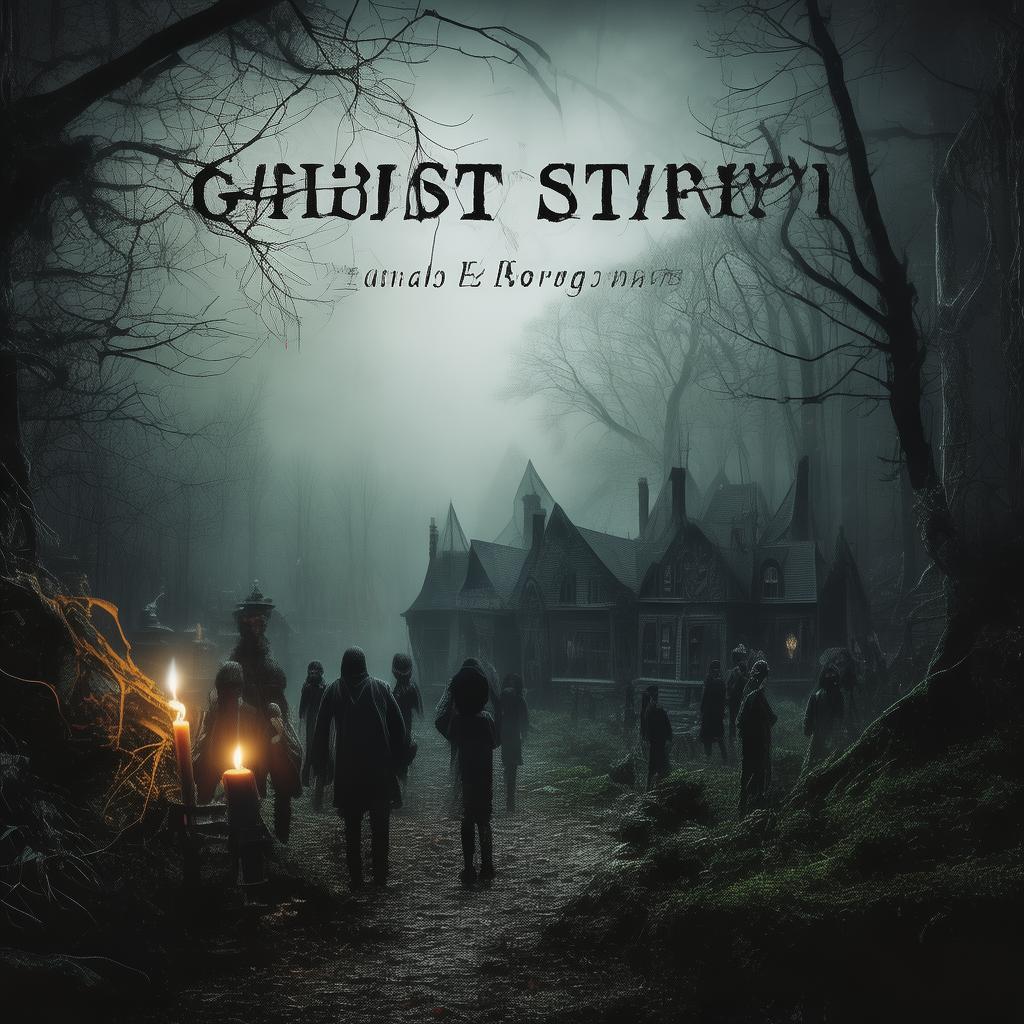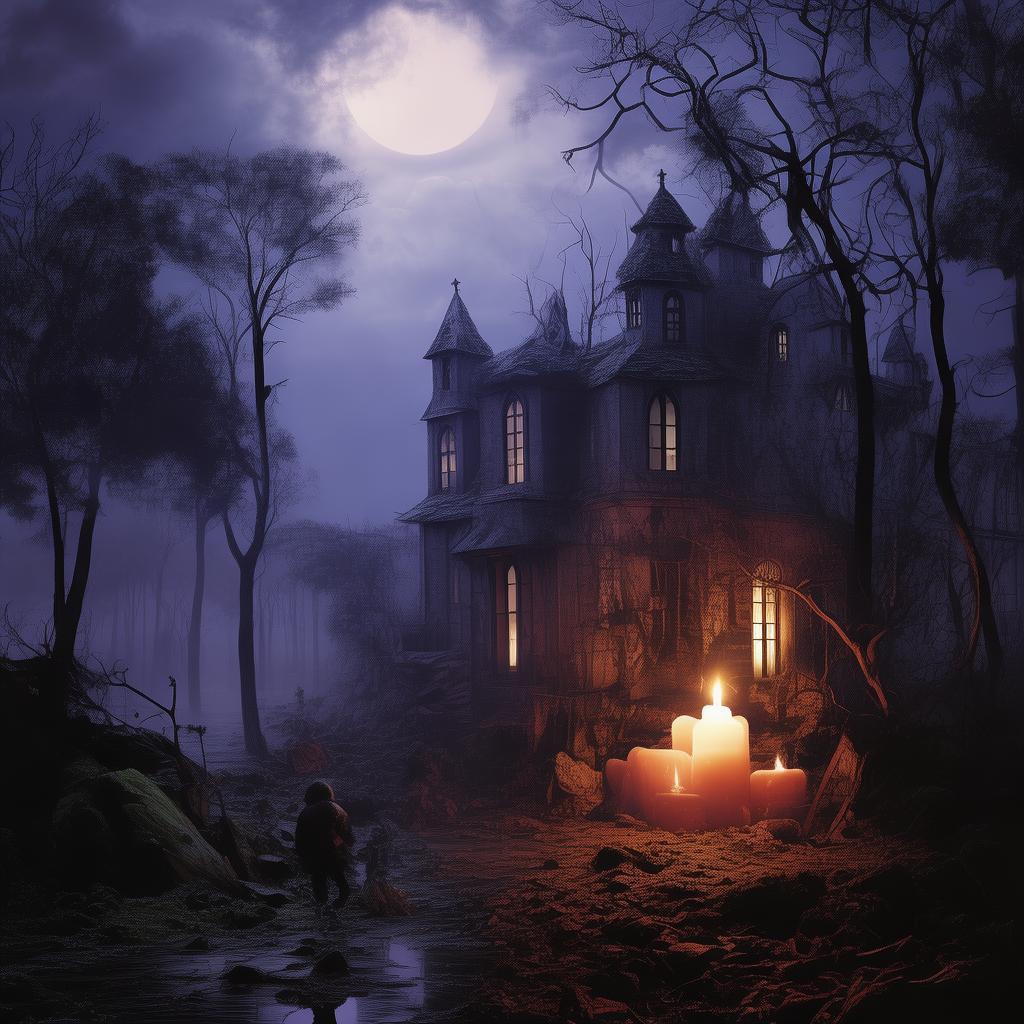The Silent Witness: The Haunting of the Abandoned Orphanage
In the heart of the dilapidated city, an old, abandoned orphanage stood, a relic of a bygone era. Its once vibrant windows now stared blankly at the world, the paint peeling off in strips like the faces of the children who once lived there. The air was thick with the scent of dust and decay, and the silence was almost oppressive. It was a place that few dared to venture near, a place where the living feared the unseen.
Among these few was a young historian named Clara. She had a knack for uncovering the secrets of the past, a talent that had led her to countless historical sites and tales of the supernatural. This time, her curiosity had led her to the abandoned orphanage, a place that had been shrouded in mystery for decades.

Clara had heard whispers of the place, stories of children who had vanished without a trace, of shadows seen at night, and of the occasional ghostly laughter that echoed through the empty halls. It was these stories that had drawn her to the orphanage, a place that was said to be haunted by the spirits of the children who had never been laid to rest.
Her first day at the orphanage was a blur of dust, cobwebs, and the faint scent of something ancient. She wandered through the long corridors, her flashlight cutting through the darkness, casting eerie shadows on the walls. The silence was broken only by the occasional creak of the aging structure. Clara had always been able to feel the presence of the past, but this was different. She could sense the spirits, their sadness and anger lingering in the air like a tangible thing.
As she moved deeper into the orphanage, Clara found herself in the children's playroom. The room was filled with old toys, dolls with missing limbs, and broken puzzles. She picked up one of the dolls, its eyes hollow and its mouth twisted in a perpetual scream. She could feel the coldness of the spirit that had once occupied this space, a child who had been denied the right to grow up.
The next day, Clara returned to the orphanage, her resolve to uncover the truth undeterred. She began to research the history of the place, poring over old records and interviewing the few surviving members of the community who had memories of the orphanage. The more she learned, the more she realized that the stories of the haunted orphanage were based in fact.
The orphanage had been built in the late 19th century, a time when child labor was common and the government's oversight was minimal. The children who had been placed in the care of the orphanage had suffered greatly, both physically and emotionally. Many had died under the harsh conditions, and those who survived had been scarred for life.
As Clara delved deeper into the past, she began to see a pattern. The spirits of the children were not just haunting the orphanage; they were trying to communicate with the world. They wanted to be heard, to be remembered. Clara felt a responsibility to help them.
She spent the next few weeks documenting the stories of the children, their lives and their deaths. She spoke with the ghostly figures that appeared to her, their voices soft and filled with a desperate need to be understood. Clara realized that the children's spirits were trapped in the orphanage, bound to the place where they had been so cruelly mistreated.
One evening, as Clara sat in the old playroom, a child appeared before her. She was young, with eyes filled with sorrow and a gentle smile. "Thank you," the child said, her voice barely audible. "You have listened to us."
Clara nodded, her heart heavy with emotion. "I will do everything I can to make sure your story is told," she promised.
As the days passed, Clara worked tirelessly to bring attention to the plight of the children. She published her findings, and the community began to take notice. The orphanage was finally closed, and the children were given a proper resting place.
The spirits of the children were finally at peace, their stories now part of the city's history. Clara had fulfilled her promise, and the haunted orphanage had become a place of remembrance rather than fear.
In the end, Clara knew that her journey had not been just about uncovering the past. It had been about giving a voice to those who had been silenced for so long. The silent witness had spoken, and the world had listened.
The story of the haunted orphanage had spread, becoming a local legend. Clara had become the guardian of the forgotten children, a historian who had not just uncovered the past but had also helped to heal the wounds of the present. And in the heart of the dilapidated city, the old orphanage stood, a testament to the power of compassion and the enduring spirit of the human soul.
✨ Original Statement ✨
All articles published on this website (including but not limited to text, images, videos, and other content) are original or authorized for reposting and are protected by relevant laws. Without the explicit written permission of this website, no individual or organization may copy, modify, repost, or use the content for commercial purposes.
If you need to quote or cooperate, please contact this site for authorization. We reserve the right to pursue legal responsibility for any unauthorized use.
Hereby declared.









